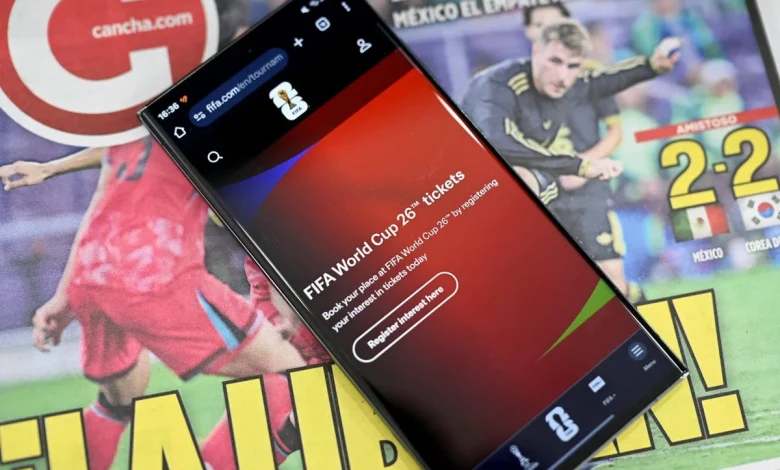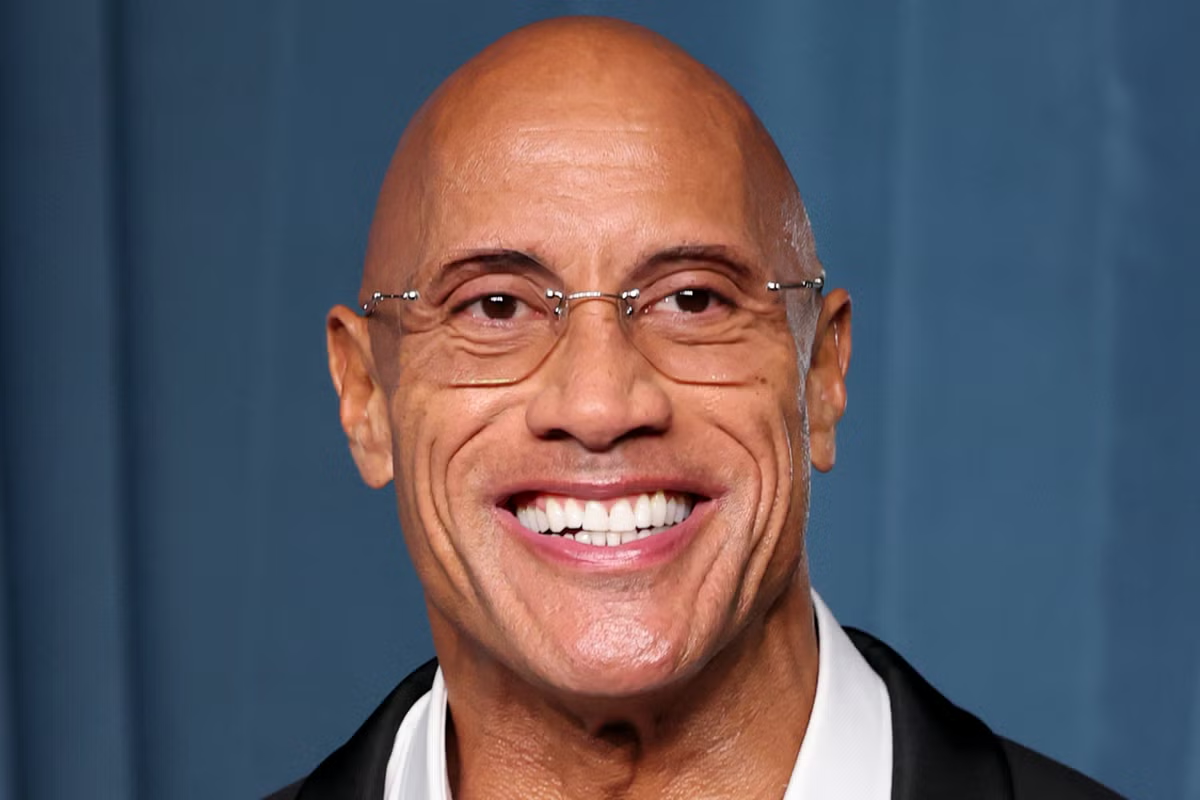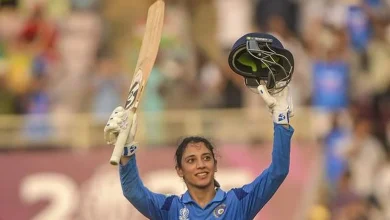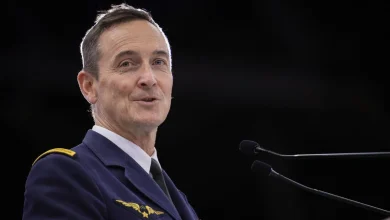World Cup fans with ‘right to buy’ tickets say FIFA forced them into ‘unjust ultimatum’ – The Athletic

Exasperated fans who bought the “right to buy” 2026 World Cup tickets say that FIFA has forced them into an “unjust ultimatum”: gamble that opaque ticket prices will be affordable, or cut their losses and concede that they were “scammed.”
Over the past year, FIFA and a crypto partner, Modex, sold tens of thousands of “Right To Buy” tokens on their FIFA Collect platform. Each token cost hundreds of dollars and promised buyers the ability to purchase one or two World Cup tickets at a to-be-determined later date, for a to-be-determined price.
Eager fans flocked to the platform. Many saw the so-called “RTBs” as a clever way to bypass ticket lotteries or avoid getting gouged by scalpers or FIFA’s “variable pricing.”
But now, some feel exploited and powerless. FIFA Collect has essentially given them a Thursday, Nov. 13 deadline to decide whether they want to use their RTBs to purchase tickets. The problem: FIFA, as of Monday night, hasn’t told them how much the tickets will cost.
And if they hold the RTBs past Thursday but ultimately can’t afford the tickets they have the “right to buy”? The tokens then become worthless. They are untradeable once the purchasing window opens on Thursday, FIFA Collect recently announced, and “will lose all ticket-related value” when the window closes on Dec. 1.
Fans could, alternatively, resell their RTBs before Thursday’s deadline on FIFA Collect’s secondary marketplace — but likely at a loss. Prices there have tanked since the early-October revelations that 2026 World Cup tickets would cost multiples more than any previous World Cup tickets; and that most RTB holders will only be allowed to purchase Category 1 or 2 tickets, the most expensive ones.
Since Oct. 1, according to FIFA Collect Info, a spinoff website tracking all transactions on the platform, the going rate for RTBs for nearly all of the 2026 World Cup’s 104 games has fallen, in most cases by more than $100. In the vast majority of cases, the resale price is now lower than the original purchase price.
Selling an RTB, therefore, would amount to losing money on FIFA Collect, forfeiting the right to purchase World Cup tickets, and acknowledging that the time and energy invested in acquiring RTBs was all for naught.
So, some fans are stressed, furious, or both. Many seem willing to hold out for tickets at the unknown prices, but they’ve been voicing “massive discontent and financial frustration,” Rafael Baqueiro, an RTB holder and leader of two international World Cup fan groups, told The Athletic.
With the deadlines before the Dec. 5 World Cup Draw, and with initial ticket prices — never announced by FIFA, but revealed by The Athletic last month — “super high,” FIFA is “forcing fans to commit thousands of dollars to tickets without knowing which teams are playing,” Baqueiro, a Toronto-based supporter of Mexico’s national team, wrote in an email.
And in a phone interview, he said he was questioning whether he’d pay the thousands of dollars for tickets or, on the other hand, sell some of his RTBs to recoup money he’d already spent.
As of Monday, he and others were still awaiting word on how much they’d have to pay. Last Friday, six days before the deadline, a FIFA Collect administrator wrote on Discord: “The situation on pricing is that we have not yet received it from FIFA ticketing. … As frustrating as this may sound, this does not depend on us so we can’t really commit on when and if this would happen.”
FIFA, which has made tens of millions of dollars on the FIFA Collect project, did not answer emailed questions seeking explanations for the tight timeline and pricing opacity.
‘We NEED prices!’
When FIFA, the global soccer governing body that runs the World Cup, launched FIFA Collect in 2022, it said that the digital collectibles platform would be “affordable, inclusive and accessible to all football fans.” In its early days, it served a small community of avid collectors. It sold relatively cheap packs of NFTs. It was “promoted as a trustworthy and innovative digital collectibles ecosystem backed by FIFA,” Alann Diaz, an early user, told The Athletic via email.
In 2023, though, its appeal faded. In 2024, it became “a collaboration between FIFA and Modex,” a European-based blockchain service provider. And it rebounded with a new product: RTBs.
At first, they were novelties; throughout 2024, supply remained scarce. But in the spring, summer and fall of 2025, FIFA Collect sold over $30 million worth of NFTs, with most sales tied to the “right to buy” 2026 World Cup tickets, according to spinoff sites that log transactions. FIFA, in emails and on its website, began to promote the RTBs aggressively — even as it withheld details of its standard World Cup ticketing processes.
And fans bought them, despite a lack of clarity around when, how and at what cost the RTBs could be converted into tickets. One set of “Terms & Conditions” stated: “Actual ticket prices and purchase process will be communicated separately. … The [RTB] card does not provide free tickets; it only allows the right to purchase two tickets for the specified match.”
Buying 2026 World Cup tickets has been an adventure for many fans (Carl de Souza / AFP / Getty Images)
Throughout 2025, in an official Discord channel and elsewhere, users pressed FIFA Collect administrators for the “when,” “how” and “how much.” Instead, they got what one user called “a pattern of vague answers, shifting promises, and last minute shocks that keeps repeating.”
They were told in one December 2024 email reviewed by The Athletic: “Tickets will be available across different categories, providing options to suit various preferences and needs.” Then, last month, they were told that 70 percent of the tickets made available to RTB holders will be in Category 1, the most expensive category; 28 percent will be in Category 2; and a mere 2 percent will be in Category 3. None will be available in Category 4, the only category with any offerings under $100 (for some group stage games).
“NO WAY,” one RTB holder wrote on Discord in an incredulous response to that announcement.
Others told The Athletic they felt “scammed” or “taken advantage of.”
“I feel ripped off,” said Weston Binford, a fan who spent thousands on RTBs for several matches in Texas, then felt “turned off” by early ticket prices. “And I feel stupid.”
Amid the outrage, FIFA Collect administrators said they would push FIFA’s ticketing department for more Category 3 inventory. But a few weeks later, on Oct. 30, an admin communicated: “Unfortunately, no additional allocations were received.” The admin also mentioned that pricing “details” were “still being coordinated with FIFA Ticketing.” FIFA Collect, the admin said, “will share them in the coming days — allowing sufficient time for everyone to trade and make decisions ahead of [the Nov. 13 deadline].”
But eight days later, in Friday’s Discord message, there were no updates, and the admin again passed blame for the lack of information to FIFA Ticketing. (FIFA Collect is operated by Modex but owned by FIFA, and administrators have said they “work in very close contact with FIFA Ticketing … and also with FIFA management on everything.”)
“RIDICULOUS,” one user wrote in response.
“How can we make ‘appropriate’ decisions with our RTBs without that big piece of information and yet only 6 days before they LOCK!????” another asked. “We NEED prices!!!”
Some of the frustration targeted FIFA. “FIFA’s modus operandi for this [World Cup] is to keep everything as opaque as possible,” one user wrote. “I don’t think they care about the fan experience.”
Others directed their ire at FIFA Collect’s operators, who are mostly nameless. “Don’t sell stuff if you don’t have it or know the details,” one user wrote. “Shame on you.”
Another added: “A 6-year-old school project is better organized and communicated then this scammy thing.”
Modex executives did not respond to emails seeking answers to a variety of questions — neither in September nor this week — and previously declined to speak via phone.
A FIFA spokesperson, in response to previous questions about the RTB scheme, wrote in an October email that “FIFA does not disclose specifics on business, financial or commercial strategies. It does, however, continually analyse and assess these strategies on a regular basis to ensure they are working in the interest of the fan and global football.”
The spokesperson added: “As with all of FIFA’s commercial activities, revenues go directly back into football development and social projects worldwide.”
In mid-July, FIFA Collect began contributing “20 percent of all proceeds” on RTB sales to the FIFA Global Citizen Education Fund to “help provide education access to the world’s most marginalized children, build safe learning environments, and accelerate progress toward every child’s right to quality education across more than 200 countries.” FIFA Collect’s website says that $3.1 million has been raised for the fund.
FIFA Collect amends terms amid Swiss investigation
Also in October, the Swiss Gambling Supervisory Authority, a governmental agency known as GESPA, filed a criminal complaint against Zurich-based FIFA targeting FIFA Collect and its “Right to Final” scheme.
For months, FIFA Collect offered fans an NFT that could be used to purchase a ticket to the 2026 World Cup final if a specific team reached the final. You could, for example, pay $999 for the right to pay an unknown price for one ticket to the final if, and only if, the U.S. men’s national team makes it. There were similar offerings for 33 other teams, with prices ranging from $999 to $299.
“Please note,” the listings read, “there will be no refund in case of failure of the chosen national team to qualify for the FIFA World Cup™ Final.”
Earlier this year, GESPA caught wind of the scheme and opened an investigation into FIFA Collect. It concluded that, “from a gambling law perspective, the offers in question are partly lotteries and partly sports betting (right-to-final).”
It therefore filed the formal complaint on Oct. 17, and reported the platform to relevant Swiss authorities.
“During the investigation, suspicions were confirmed that collect.fifa.com offers gambling services that are not licensed in Switzerland and are therefore illegal,” GESPA said in a statement.
Seemingly in response to the investigation, but quietly, sometime in recent months, FIFA Collect amended the terms of each “Right to Final” listing.
The “no refund” sentence was deleted and replaced by a paragraph promising the opposite: “Should the team connected to your Right to Final (RTF) collectible not advance to the Final match, you will receive a full refund for your purchase, issued either as a FIFA Collect coupon for you to use on future drops, or refunded to you via your original payment method.”
FIFA spokespeople and a Modex executive did not respond to a question about the timing of and reason for the amendment.





